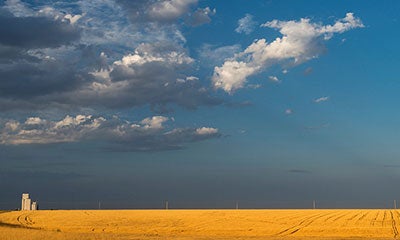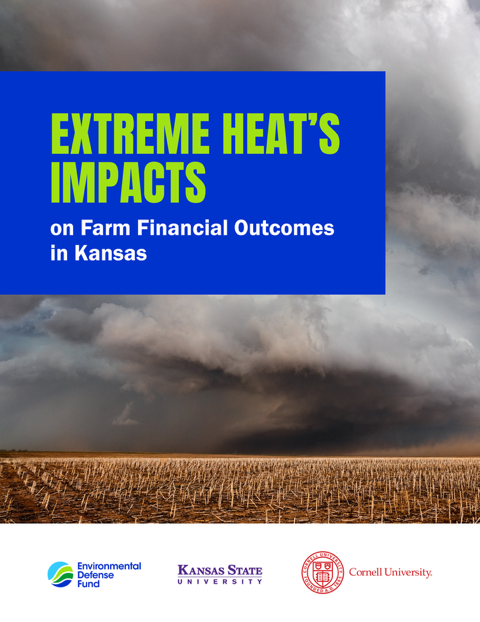Extreme heat’s impacts on farm financial outcomes in Kansas
Environmental Defense Fund, Cornell University and Kansas State University studied how severe weather financially impacts Kansas farms and how management choices and government programs mitigate the negative impacts.
The study used a 40-year Kansas farm financial dataset and historic weather data to measure the impacts of extreme heat on gross and net farm income.
Key report findings
- The number of days with extreme heat that causes crop loss has increased over the last four decades and is projected to increase by 58% by 2030.
- Over the last four decades, for every 1⁰C of warming, gross farm income decreased by 7%, and net farm income decreased by 66%. These results include income recovered by crop insurance.
- For every 1⁰C of warming, the average farm in our sample lost about $43,000 on an average net farm income of about $66,000.
- Farmers’ risk management tools helped reduce the impacts of extreme heat on net farm income. Crop insurance helped recover 51% of net income losses while crop inventory adjustments helped recover 16% of net income losses.
- Extreme heat had negative long-term impacts on land value. Over a 30-year period, land value growth was 5% lower, and farm equity growth was 5.6% lower than would have been the case without increasing extreme heat.

Increasing extreme heat is hurting Kansas farmers’ bottom line
A new study by EDF, Kansas State University and Cornell University examines the impacts of extreme heat over the last four decades.
